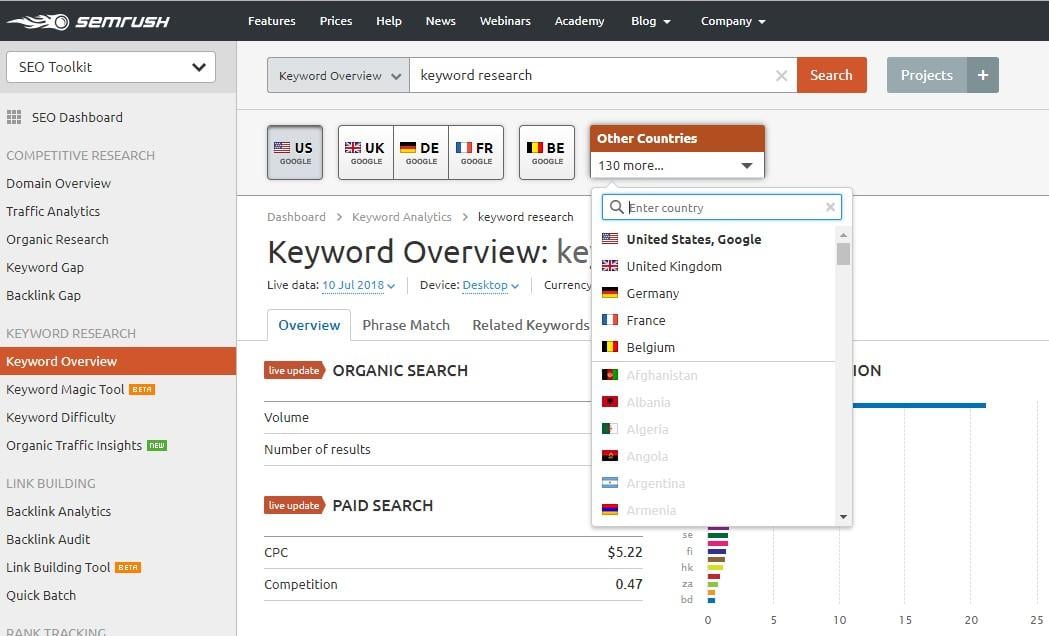Navigating the Digital Landscape: Leveraging International Search Engine Optimization for Cross-Border Success
In today's interconnected electronic world, organizations are significantly looking past borders to touch into global markets. The complexity of browsing the digital landscape on a global range demands a nuanced strategy, from comprehending the basics of International Search engine optimization to implementing geotargeting and multilingual search phrase methods.
Recognizing International Search Engine Optimization Fundamentals
Navigating the details of global Search engine optimization needs a solid grasp of essential concepts to properly increase on-line visibility across borders. One essential facet of worldwide Search engine optimization is recognizing the relevance of localization.
In addition, having a clear understanding of geo-targeting is crucial. This includes showing to search engines the specific countries or areas a site is targeting. Carrying out hreflang tags is one method to communicate this information, guaranteeing that the right variation of a page appears in the search engine result for an individual in a particular area.
In addition, understanding the impact of local search engines and social media sites platforms is important for international search engine optimization success. While Google is leading in many regions, countries like China have their very own search engines like Baidu, requiring tailored approaches for each system to make the most of on-line exposure (International SEO).

Targeting Multilingual Key Phrase Methods
Developing multilingual key words methods is essential for effectively reaching varied international audiences and optimizing on-line visibility throughout various linguistic regions. When targeting multilingual keyword phrase methods, it is vital to carry out complete research study to comprehend the particular search terms and expressions utilized by the target audience in each etymological area. This entails not just equating key phrases yet additionally considering social nuances, regional languages, and search patterns distinct to every target audience.
To create a successful multilingual keyword phrase approach, it is necessary to prioritize significance and search intent. Keywords need to straighten with the material on the internet site and reverberate with the cultural context of the target audience. Using tools such as Google Keyword Phrase Organizer, SEMrush, or Ahrefs can assist identify high-performing keyword phrases in different languages and analyze their search quantity and competitors degree.
Moreover, tracking and assessing the efficiency of multilingual key words regularly is crucial for optimizing and refining the method with time. By continuously adapting to changes in search actions and fads, services can improve their on-line visibility and draw in more worldwide website traffic to their web sites.
Applying Geotargeting and Hreflang Tags
When intending to enhance international search engine optimization methods, incorporating geotargeting and hreflang tags is essential for optimizing web site exposure across various regions. Geotargeting includes customizing material to particular areas, guaranteeing that customers in various areas obtain appropriate details. By implementing geotargeting, organizations can improve their regional search rankings and attract region-specific traffic.

Optimizing Web Site Structure for Worldwide Presence
To additionally enhance worldwide SEO strategies beyond geotargeting and hreflang tags, maximizing the web site structure is necessary for accomplishing global exposure and making the most of reach across different regions. A well-structured site not just boosts user experience yet likewise helps with online search engine spiders in understanding the content and context of the site. When intending for worldwide presence, it is critical to make certain that the web site is arranged in a logical manner that satisfies users from various nations. Executing a clear hierarchy with distinctive groups and subcategories can aid in enhancing the click for source website's navigating and user-friendliness.
Furthermore, producing language-specific subdirectories or subdomains can help browse engines deliver the appropriate variation of the site to users based upon their language preferences, further enhancing the overall customer experience. Furthermore, enhancing URL structures to consist of relevant key words and geotargeted terms can enhance the website's exposure in different Going Here areas. By structuring the internet site effectively for global target markets, businesses can boost their opportunities of drawing in international traffic and expanding their reach throughout borders.

Surveillance and Analyzing Cross-Border Performance
Effective tracking and analyzing of cross-border efficiency is necessary for examining the success of global search engine optimization methods and recognizing possibilities for improvement in worldwide reach and presence. By closely tracking key efficiency signs (KPIs) across various markets, services can obtain important insights into the efficiency of their cross-border search engine optimization initiatives. Checking metrics such as organic traffic, keyword positions, conversion prices, and bounce prices can give an extensive sight of exactly how well a website is executing in different regions.
By contrasting efficiency across different nations, regions, or languages, business can pinpoint effective approaches and localize content to better cater to particular target audiences (International SEO). Regular evaluation of Search engine optimization efficiency on a global range ensures that business can adjust their approaches swiftly to take advantage of on emerging opportunities and preserve an affordable side in global markets.
Final Thought
Finally, worldwide SEO plays a vital role in attaining cross-border success by maximizing websites for international visibility, targeting multilingual search phrase strategies, executing geotargeting and hreflang tags, and monitoring cross-border efficiency. By understanding the principles of worldwide search engine optimization you can find out more and optimizing internet site frameworks as necessary, companies can efficiently reach and involve with their target audiences across different regions and languages. This tactical technique is crucial for expanding market reach and driving online development in today's digital landscape.